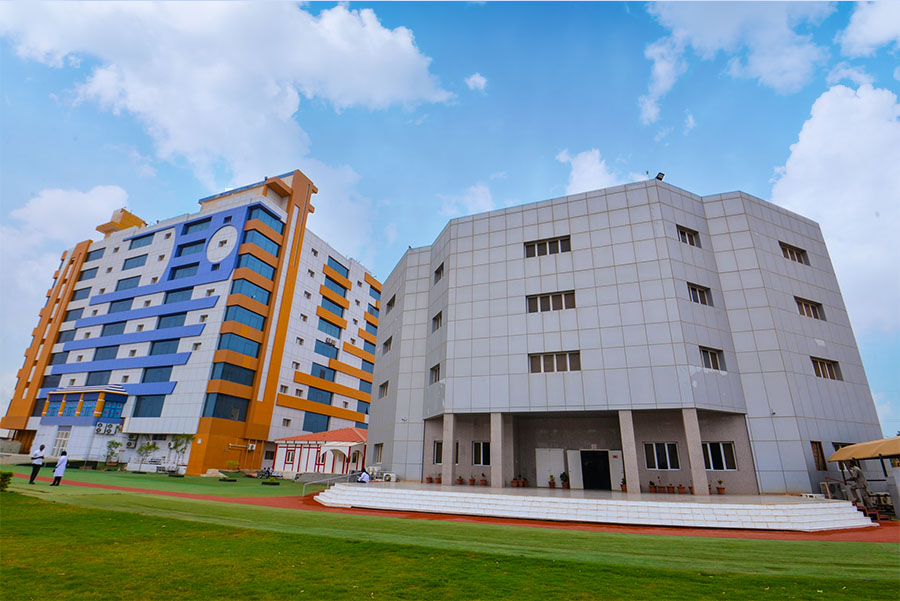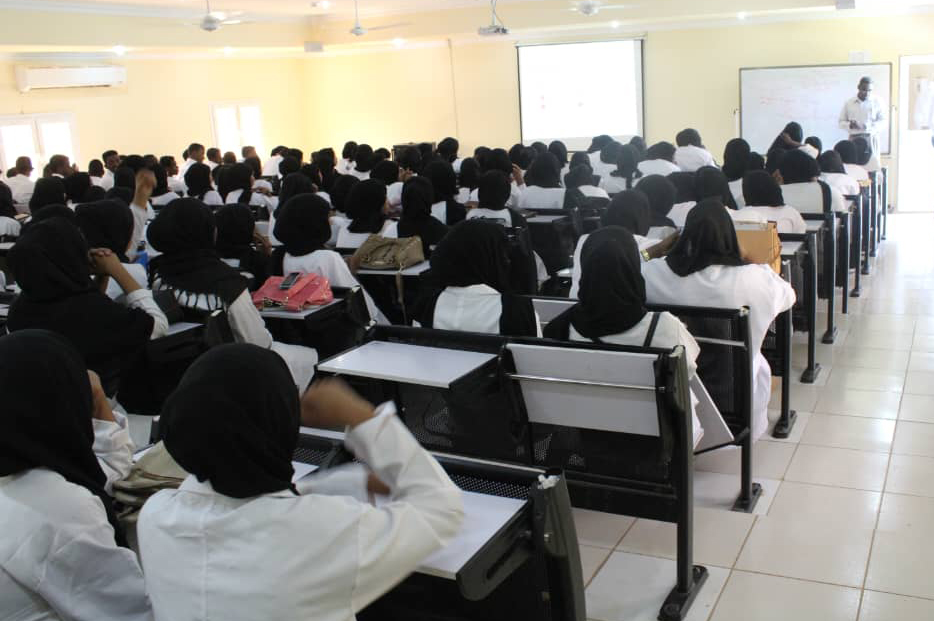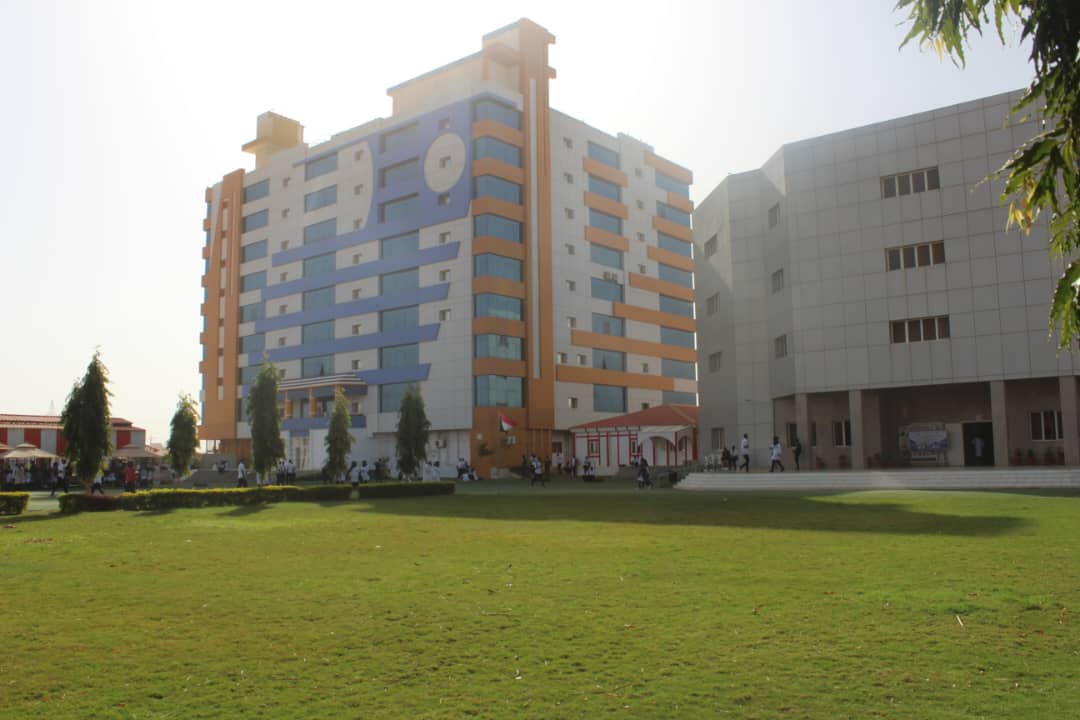The National University of Sudan Journey
A Legacy of Innovation, Global Engagement, and Transformative Education

The National University of Sudan (NUSU) was founded by a visionary group of academicians and physicians. The institution emerged as a private limited company with a mission to bridge gaps in Sudan education system by offering globally competitive, practice-oriented programmes. This founding cohort aimed to establish an institution that would not only serve Sudan but also contribute to the regional and international knowledge economies.
In 2005, after meticulous planning, the college was formally approved by the Sudan Ministry of Higher Education and Scientific Research under the name National College for Medical and Technical Studies. Its inaugural academic offerings, Medical, Pharmacy, Physiotherapy, and Health Informatics programmes, were strategically chosen to address Sudan’s acute shortage of healthcare professionals. The inclusion of a Diploma in Physiotherapy further underscored its commitment to producing skilled practitioners ready to tackle public health challenges.
Pioneering Expansion and Academic Diversification (2006–2008)
By 2006, the college’s rapid growth signaled its potential as a national leader in health sciences. The introduction of Dental and Radiography programmes expanded their healthcare focus, while state-of-the-art laboratories and partnerships with local hospitals provided students with hands-on clinical training. This period also saw the establishment of a robust research culture, with faculty and students collaborating on projects ranging from tropical disease management to innovations in healthcare technology.
In 2008, NUSU embarked on a transformative phase of academic diversification. The launch of the Bachelor of Nursing and Midwifery addressed critical gaps in maternal and neonatal care, aligning with Sudan’s public health priorities. Simultaneously, the college ventured beyond healthcare, introducing Medical Laboratory Technology and Administrative Studies programmes. The latter included specialised tracks in Business Administration, Accounting, Marketing, and Management Information Systems, reflecting a strategic shift toward interdisciplinary education. These programmes were designed to cultivate leaders capable of driving Sudan’s economic and technological development.
Quality Assurance and International Recognition (2008–2014)
NUSU’s commitment to excellence was cemented in 2009 when it became Sudan’s first higher education institution to achieve ISO 9001:2008 certification for its quality management systems. This milestone was the result of rigorous internal reforms, including the implementation of standardised curricula, enhanced faculty training, and the introduction of student feedback mechanisms. The ISO certification not only validated NUSU’s operational rigour but also positioned it as a model for institutional accountability in Sudan’s education sector.
Concurrently, the university strengthened its global ties. Joining the Union of Arab Universities (2008) facilitated academic exchanges and joint research initiatives with institutions across the Middle East. Membership in the Association of African Universities (2011) and the International Association of Universities (2013) further integrated NUSU into global academic networks, enabling faculty collaborations, student mobility programmes, and participation in international conferences. These partnerships enriched NUSU’s academic environment, exposing students to diverse perspectives and cutting-edge research.
Postgraduate Studies
The university’s journey into postgraduate studies commenced in 2010 with the establishment of a Master’s programme in Human Anatomy. This programme was initially developed through a collaborative partnership with the University of Gezira, Sudan, highlighting the university’s commitment to fostering academic cooperation and knowledge exchange. The initiation of this graduate programme marked a significant milestone for the university, representing its first dedicated step into the realm of graduate studies and advanced research. It was designed to respond to the growing demand for specialised expertise in the field of human anatomy, both at the national level and in the broader international context. This pioneering effort not only aimed to elevate the university academic profile but also to contribute meaningfully to addressing healthcare and scientific needs within Sudan and beyond, laying the foundation for future postgraduate programs and research initiatives. Currently the graduated programmes spanning more than 40 certified programme.

Historic Transition to University Status (2014)
In 2014, NUSU achieved a landmark feat: having graduated five cohorts of students and fulfilled the criteria established by the Ministry of Higher Education and Scientific Research (MHESR), the institution applied to be upgraded to university status. Remarkably, it was promoted to a full university after just nine years, an extraordinary feat in Sudanese higher education, where most colleges typically require 15 to 20 years to achieve such recognition. This swift advancement underscores the university’s commitment to delivering quality education and its efficient development. The upgrade was recommended by the MHESR and subsequently approved by the Sudan Council of Ministers, the President of the Republic of Sudan and the Sudanese National Assembly, which hold the highest authorities in the country.
Through an Initial Public Offering (IPO), NUSU transitioned from private ownership to a publicly traded entity on the Sudan Stock Exchange. This move democratised institutional governance, allowing citizens to invest in its future while ensuring financial transparency and accountability.
Academic Innovation and Global Accreditation (2014–2016)
As a full-fledged university, NUSU embarked on an ambitious expansion of its academic portfolio. In 2016, it established the Faculty of International Relations and Diplomatic Studies, responding to Sudan’s evolving geopolitical landscape and demand for skilled diplomats. The faculty’s curriculum emphasised conflict resolution, global governance, and international law, with case studies focused on African and Arab regional dynamics.
That same year, NUSU launched the Faculty of Engineering, offering programmes in Civil Engineering, Architecture, and Electrical/Electronic Engineering. These programmes were designed in collaboration with industry leaders to address Sudan’s infrastructure needs, incorporating modules on sustainable design, renewable energy, and smart city technologies. The faculty’s inauguration marked NUSU’s evolution into a comprehensive university, blending technical expertise with societal relevance.
A crowning achievement in 2015 was NUSU’s accreditation by the British Accreditation Council (BAC), a first for any Sudanese institution. This three-year accreditation affirmed compliance with international standards in teaching, facilities, and student support. The BAC review highlighted NUSU’s innovative use of technology in classrooms, research output, and emphasis on employability skills, setting a precedent for other institutions in the region.
Graduate Impact and Global Mobility
NUSU’s graduates are a testament to its academic rigour and global orientation. Alumni from Medicine, Pharmacy, and Dentistry are registered with the Sudan Medical Council and recognised by prestigious bodies worldwide, including the UK General Medical Council, the European Union’s Directive 2005/36/EC, and the Educational Commission for Foreign Medical Graduates (ECFMG) in the U.S. Many have pursued residencies and fellowships at leading hospitals in Europe, North America, and the Gulf, earning acclaim for their clinical competence and research contributions.
Graduates of Radiography, Physiotherapy, Nursing, and Medical Laboratory Technology are similarly distinguished. Certified by Sudan’s National Council for Medical and Health Specialities, they work in diverse settings from rural health clinics in sub-Saharan Africa to advanced research labs in Europe. The university’s nursing alumni, in particular, have played critical roles in combating infectious disease outbreaks, including COVID-19 and malaria, across the continent.
Beyond healthcare, NUSU’s Administrative Studies and Engineering graduates have driven innovation in Sudan’s private and public sectors. Entrepreneurs from its business programmes have launched tech startups and agribusiness ventures, while engineering alumni contribute to major infrastructure projects, such as dam construction and renewable energy initiatives.
Strategic Partnerships and Community Engagement
Strategic alliances with global institutions bolster NUSU’s success. Partnerships with universities in the UK, Germany, and Malaysia facilitate dual-degree programmes, faculty exchanges, and collaborative research in fields like telemedicine and urban planning. The university also hosts annual International Conferences on Health and Technology, attracting scholars and policymakers to discuss solutions to regional challenges.
Locally, NUSU prioritises community impact. Its Outreach and Development Office organises medical camps, engineering workshops, and literacy programmes in underserved regions. During the 2020 COVID-19 pandemic, NUSU mobilised its medical students and faculty to support public health campaigns and raise awareness in remote communities.

Future Vision: Sustainability, Technology, and Global Leadership
Looking ahead, NUSU aims to solidify its position as a hub for innovation and sustainable development. Plans include the establishment of a Faculty of Artificial Intelligence and Data Science, designed to equip students with the skills necessary for the Fourth Industrial Revolution. The university is also investing in green campus initiatives, such as solar energy systems and water recycling projects, aligning with global sustainability goals.
NUSU’s leadership envisions deepening its international footprint through expanded MOOC (Massive Open Online Course) offerings and partnerships with global online education platforms. By democratising access to its programmes, the university seeks to empower learners across Africa and the Arab world.
The Lighthouse Excellence
From its origins as a modest medical college to its current status as a multidisciplinary university, NUSU’s journey embodies resilience, innovation, and an unwavering commitment to excellence. Its rapid ascent in Sudan’s academic landscape, marked by international accreditations, public accountability, and graduate success, serves as a blueprint for higher education reform in emerging economies. As NUSU continues to evolve, it remains dedicated to its founding ethos: nurturing leaders who transcend borders, transform communities, and redefine possibilities for future generations.
